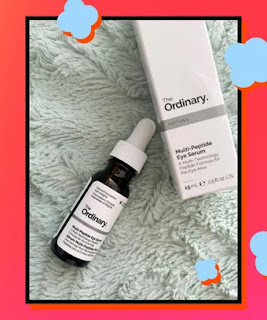How Often Should You Use Niacinamide?
New day, new vitamin, and what you should incorporate into your daily routine. Today we’re focusing on Vitamin B3, also known as Niacinamide. Luckily for all of us, it’s found in a wide range of skincare products. This versatile ingredient has many impressive benefits that can keep your complexion radiant and at its healthiest.
The question is, despite the benefits of Niacinamide for your skin, how often should you use it? Is it a good thing that you have too much or never enough? Let me take the guesswork out and explain how often you should use Niacinamide.
Can Niacinamide be used daily?
Yes, using Niacinamide daily will have a host of benefits for your skin. Here are the skin results you can expect when using it daily.
Oil Regulation
Niacinamide is known to regulate sebum production (natural oils in your skin). It has a calming effect on the skin due to its antibacterial properties and can clear clogged pores that often lead to blackheads and other breakouts. It’s gentler on the skin than stronger acne-fighting ingredients like salicylic acid and benzoyl peroxide.
Supports the function of the skin barrier
With its moisturizing properties, Niacinamide has been shown to strengthen the entire skin barrier and maintain the correct water levels to ensure it functions properly. This is particularly beneficial for those who are dehydrated, as it attracts moisture from the surrounding skin area and holds it in place. Fights free radical damage from pollution and UV rays, giving you an all-around radiant complexion.
Fights signs of skin aging
With Niacinamide’s antioxidant and microcirculation-boosting properties, you’ll find that signs of aging such as fine lines, wrinkles, and collagen loss are slowed down as Niacinamide boosts collagen production, leaving skin looking plump, youthful, and radiant.
Reduces signs of hyperpigmentation
Favored by many skin experts and dermatologists, Niacinamide helps maintain skin radiance and reduces melanin production to a minimum, so that dark spots or hyperpigmentation fade and become less noticeable over time.
With results like these, I can’t blame you if you’re excited about the idea of using Niacinamide on a daily basis, but be warned: you can overdo it with this clever moisturizer. More on that in the next section.
Can you use too much niacinamide?
When using high concentrations of niacinamide, it can increase skin sensitivity, leading to irritation and redness. So while it may be tempting to add more moisture to your skin, all skin experts recommend applying the right amount of niacinamide to your skin. The reason too much niacinamide causes your skin to react badly is that the moisturizing properties can draw moisture away not only from your face, but also from the layers below the skin, leading to the opposite effect you get when using niacinamide.
When should I routinely use niacinamide?
You’ll often find niacinamide in water-based products like serums and moisturizers. These products are meant to be used later in your skincare routine and work best when used on completely clean skin, as this ensures not only that the niacinamide-rich product is absorbed effectively, but that any other ingredients you apply to your skin get to work faster and achieve impressive results.
Is too much niacinamide bad for your skin?
As explained earlier, you can get too much of a good thing, especially niacinamide. Applying too much niacinamide to your skin can lead to breakouts and irritation. So follow the directions for use on the product packaging. If you are new to niacinamide, you will need to do a 24-hour patch test before applying it all over your skin. If you have concerns, you should contact your doctor or dermatologist for more information and reassurance.
Should I use niacinamide in the morning or at night?
You can apply niacinamide morning and night. Yes, it is true that it will benefit your skin to varying degrees when you use this hydrating powerhouse twice a day. Its antioxidant properties fight any signs of damage during the day and repair them at night. You will find that any additional products or ingredients you use will be effectively absorbed and show results faster.
The only problem you may encounter is that niacinamide does not work well with the popular skincare ingredient vitamin C. Both ingredients contain a lot of antioxidants and when used together they compete with each other, making them useless for the skin. If you want to use both in your daily routine, it is best to use vitamin C in the morning and niacinamide in the evening for the best results. If you want to learn more, read our blog post on using niacinamide and vitamin C.
How long does it take for niacinamide to work?
As with all skincare products, consistency is key to achieving visible results, and the benefits of this powerful ingredient depend on how often you use it. If you stick to a good routine and use it twice a day, you’ll reportedly see a significant improvement in signs of hyperpigmentation, with a plumper, more youthful-looking complexion in about 8-12 weeks.
Can Niacinamide be used without sunscreen?
Some studies have shown that Niacinamide can protect the skin from excessive damage caused by overexposure to the sun’s UV rays. However, all the effort and time you put into your skincare routine will go to waste if you don’t apply SPF 30 or higher sunscreen every day. To prevent sun damage, always protect your skin with sunscreen, even on days when your skin looks dull.
I hope this has cleared up any confusion you may have had and that you now have a better understanding of how often you should use Niacinamide. If you have any questions, don’t forget to find me on the Procoal Instagram account and if you’re really into skin, don’t miss the latest episode of The Green Sofa.
DQH Knowledge drop: In your 20s, your skin cell turnover decreases. (Cell turnover is a key component in keeping your skin youthful.) You know what else slows down? Your collagen production. Starting in your 20s, collagen decreases by about 1 percent per year. Should you want to prevent fine lines and wrinkles, start by eliminating behaviors that contribute to premature aging. “If it’s bad for you, it’s bad for your skin,” says dermatologist Michel Somenek.
“Cigarette smoking reduces blood flow to the skin and causes premature wrinkling and a dull skin texture. Making the repeated pursed motion to inhale can also cause smoker’s lines. Alcohol and recreational drugs are toxins for the skin that damage its cellular structure and DNA,” Somenek tells us. “The faster you eliminate vices while you are young, the better chance your skin and body have to recuperate.” Also, adopting an anti-aging routine in your 20s is key. After all, the best offense is a good defense. We spoke to Somenek and experts Joshua Ross and Audrey Kunin to find out more.
Keep reading for the best anti-aging products for your 20s, according to skincare professionals.
Sunscreen
“We all know that the sun is the number one cause of skin aging and starting the prevention in your 20s is very important,” Ross says. “The majority of your sun damage won’t start to appear until you’re in your 30s, so don’t wait until you see it surface or you’ll be behind the curve. Stay ahead of it with a good-quality zinc-based sunscreen worn daily.”
Farmacy Green Defense Daily Mineral Sunscreen
An invisible sunscreen with SPF 30, plus botanical extracts meant to protect skin with tons of antioxidants. Bonus: It’s clean and fine to use under makeup.
Bareminerals Complexion Rescue™ Tinted Moisturizer Broad Spectrum SPF 30
Although we recommend you use your SPF and moisturizer separately, we also understand moments when you don’t have time or energy for that extra step. For those times, this bareMinerals moisturizer is a great thing to have on hand.
Vitamin C Serum
“A great introduction to anti-aging is to start with a vitamin C serum in your morning skincare routine,” Ross says. “It’s a powerful antioxidant that will neutralize free radicals and brighten the skin.” He adds that it’s a great way to counteract the effects of the sun’s harmful rays, which, as previously mentioned, are among the biggest causes of premature aging.
Drunk Elephant C-Firma™ Vitamin C Day Serum
The Drunk Elephant C-Firma is a lightweight serum that promises to give skin a glow by combining the brightening powers of vitamin C with ferulic acid, l-ascorbic acid, and vitamin E. The included sodium hyaluronate is meant to replace hydration loss, so you shouldn’t have to deal with any irritation.
Sunday Riley C.E.O. Rapid Flash Brightening Serum
This potent serum is jam-packed with vitamin C (15 percent, to be exact), which means it’s a potential superstar at both brightening skin and dousing it in antioxidants.
Peptides
Using peptides on your skin has many benefits, says Somenek. “The skin barrier is what defends the body against pollution, UV rays, bacteria, and toxins. It can be damaged by several everyday factors. Using topical peptides aids in building a stronger barrier,” he says. “Peptides comprise elastic fibers, which are a type of protein. These fibers help to make skin appear taut and firm. Peptides can also help repair damaged skin, relieve inflammation, and even out skin tone. Some peptides can kill acne-causing bacteria that is common in 20-somethings.”
Kunin agrees, saying, “Peptides are an excellent entry point for supporting collagen.” She recommends looking for face and eye treatments that contain these collagen-boosting powerhouses.
Charlotte Tilbury Magic Eye Rescue Cream
This Charlotte Tilbury super-emollient eye cream has a base of coconut oil and shea butter (read: it’s incredibly hydrating). Botanicals plus peptides are meant to help reduce dark circles and boost collagen, respectively.
This creamy moisturizer serves up potent collagen-boosting peptides and pycnogenol, and antioxidant-rich vitamin C. “Instead of sitting on top of the skin, peptides penetrate the outer layer so they go deep. The ‘signals’ they send tell the cells to produce elastin and collagen, which are needed for youthful-looking skin,” explains Somenek.
At-Home Peel Pads
Remember that skin cell turnover fiasco we talked about earlier? One way to help support it is by exfoliating. “Exfoliation is important to help keep skin fresh and luminous,” Kunin says. She recommends using at-home peel pads as an easy and effective way to exfoliate.
“The goal in your 20s is to fight the slowing pace of cell turnover. It is wise to use products that gently exfoliate, yet still remove oil and other impurities. Products that have Alpha Hydroxy Acids (AHA) or Beta Hydroxy Acids (BHA) are a good choice.”
According to Somenek, you should only exfoliate two to three times a week. “People of all ages are guilty of over-exfoliating and that can be too much of a good thing,” he says.
Dermadoctor Kakadu C Intensive Vitamin C Peel Pad
A few swipes of this Derma Doctor powerful peel pad promise to leave your skin glowing and smooth, thanks to the seven (yes, seven) types of chemical exfoliants, including AHA and BHA. It also contains vitamin C via Kakadu plum extract for added brightening and antioxidant protection.
KEY INGREDIENTS Kakadu plum extract is sourced from the Kakadu plum, a fruit grown in northern Australia. It contains vitamin C, which restores the skin’s natural barrier, increases collagen production, and soothes irritation.
Dr. Dennis Gross Skincare Alpha Beta® Universal Daily Peel Pads
These are the gold standard of peel pads, with a cult following and over 900 five-star reviews on Sephora. They’re easy to use and contain a blend of anti-aging exfoliating acids.
Emollient Night Cream
“In your 20s, you need to start upping the hydration in your skincare routine. You may have been cautious of over-moisturizing because of acne in your teens, but as you enter your 20s, your skin transitions and becomes drier,” Ross says. “I recommend an emollient night cream added into your evening skincare regimen.”
“Twenty-somethings need to make sure that they are not using creams that will clog their pores and cause excess oil production,” says Somenek. Opt for non-comedogenic products.
Cerave Skin Renewing Night Cream
One great choice is the CeraVe Skin Renewing Night Cream, which is a non-comedogenic night cream that leaves skin soft and glowy. It combines the moisturizing powers of ceramides and hyaluronic acid.
RoC Retinol Correxion Max Hydration Creme
“The best night cream ingredients contain retinol, benzoyl peroxide, and/or salicylic acid or hyaluronic acid. The goal is to moisturize, yet remove excess oil,” says Somenek. This Roc Retinol Correxion cream fits the bill as it contains both hyaluronic acid and retinol so it promises to moisturize while also being non-comedogenic.



